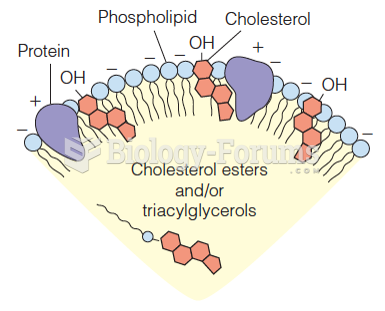|
|
|
Did you know?
Bacteria have flourished on the earth for over three billion years. They were the first life forms on the planet.
Did you know?
Despite claims by manufacturers, the supplement known as Ginkgo biloba was shown in a study of more than 3,000 participants to be ineffective in reducing development of dementia and Alzheimer’s disease in older people.
Did you know?
Approximately one in four people diagnosed with diabetes will develop foot problems. Of these, about one-third will require lower extremity amputation.
Did you know?
Human neurons are so small that they require a microscope in order to be seen. However, some neurons can be up to 3 feet long, such as those that extend from the spinal cord to the toes.
Did you know?
Green tea is able to stop the scent of garlic or onion from causing bad breath.
 The term wasp is typically defined as any insect of the order Hymenoptera and suborder Apocrita that
The term wasp is typically defined as any insect of the order Hymenoptera and suborder Apocrita that
 The paleoanthropologist must understand these deformations in order to figure out which strata a fos
The paleoanthropologist must understand these deformations in order to figure out which strata a fos





